Subchapter M: Is it Time to Press Pause?
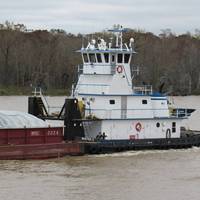
For many, the path to Subchapter M compliance has been anything but smooth sailing. And while progress has been made through the growing pains, some feel it’s time for the U.S. Coast Guard to pump the brakes.A funny thing happened on the way to compliance. We all learned that nobody was quite ready for Subchapter M.Sure, we had gone through the law with a fine-toothed combed and had self-inspected vessels and trained crews, but we were all surprised by interpretations.Third party organizations (TPO) have done their best to set up systems and satisfy paying customers and the U.S.
USCG Seeks Cruise Ship for Underway Examiner Training
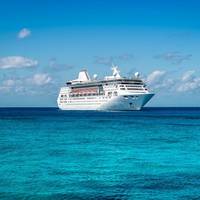
The U.S. Coast Guard said it is seeking a cruise ship to host examiner training courses while underway.The contracting opportunity is for a vessel of at least 70,000 gross tons to host three Foreign Passenger Vessel Examiner (FPVE) courses for the Coast Guard's United States Coast Guard Cruise Ship National Center of Expertise (CSNCOE). The training would be conducted in 2021 on board a cruise ship departing from either Ft. Lauderdale, Miami or Canaveral, Fla.The CSNCOE, located in Ft.
LISCR Hires Former USCG LNG Expert
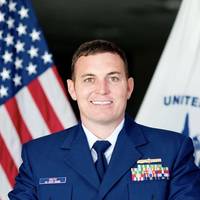
The Liberian Registry announced Dallas Smith has been hired as the Director of LNG and Offshore Technology, and as General Manager of the Liberian International Ship and Corporate Registry’s (LISCR) new Houston Office.Smith brings to his new role at LISCR over 20 years of experience as an officer in the U.S. Coast Guard. Before his retirement last month, Smith was head of the USCG Liquefied Gas National Center of Expertise where he was responsible for executing the Coast Guard’s entire liquefied gas safety, security, and environmental compliance mission around the world.
REGULATORY REVIEW: Subchapter M
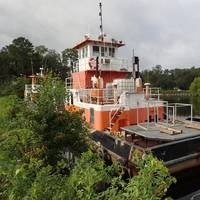
One Year In: Industry SME (Captain) Pat Folan weighs in from the front lines.It has been an interesting year for towing industry. As the new Subchapter M towboat rule rolled out, it didn’t take long to discover that the regulation wasn’t perfect. As stakeholders look ahead to what comes next, it is also helpful to take a look back at what went right, what didn’t, and more importantly – why.The U.S. Coast GuardThe US Coast Guard does not have the manpower to add more than 5,000 vessels to its workload.
ITOW Approved as TPO Under SubM
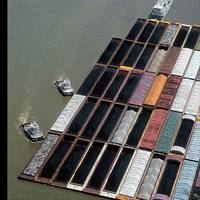
The Towing Vessel National Center of Expertise (TVNCOE) posted on its website Aug. 5, 2019, that the Coast Guard has approved Inland Towing Operators Working Together (ITOW) as a third-party organization (TPO) to carry out certain functions in accordance with Subchapter M. A complete list of all ten Coast Guard approved TPOs can be found on the TPO webpage.
Coast Guard, Industry Partner on LNG Inspector Training
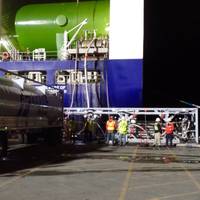
The Liquified Natural Gas (LNG) Natonal Center of Expertise, industry experts provide technical training for future LNG fueled vessel inspectors.The Coast Guard’s Liquefied Gas Carrier National Center of Expertise (LGC NCOE) partnered with Coast Guard Sector Jacksonville to coordinate a four-day “LNG as Fuel Workshop” Sept. 17-20, 2018, for future inspectors of LNG fueled vessels, with support from industry experts and the Coast Guard’s Marine Safety Center.Together, this team of LNG as fuel specialists provided Coast Guard marine inspectors from across the U.S.
Workboats & SUB M: July 20, 2018 & Beyond
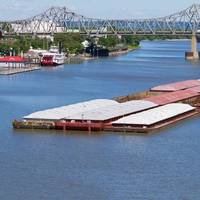
The bottom line is 46 CFR Subchapter M is drastically changing the landscape of towing operations within the United States. Some impacts we have identified and other will come to light as time passes.As the Subchapter M compliance deadline approaches on July 20, 2018, I have had the chance to discuss these new laws and their impact with a variety of Assured’s with diverse backgrounds and widely varying commercial tug operations.From my experience, there is still a great deal of confusion regarding the compliance requirements relating to Sub Chapter M.
USCG Issues Advice for Collecting Information for SubM COI's
As of June 25, 2018, the Coast Guard has issued 22 certificates of inspection (COI) to towing vessels in both the Atlantic and Pacific areas of operation. Additional inspections are scheduled between now and July 20, 2018, when Subchapter M is fully implemented. The requirements for obtaining a certificate of inspection, as detailed in 46 CFR 136.210, begin when the owner/operator submits the Office of Management and Budget (OMB) approved Form CG-3752 “Application for Inspection.” New construction vessels use Form CG-3752A. Owners/operators are only required to complete OMB-approved forms and submit the information listed in the regulations.
USCG Approves Meridian Global Consulting as TPO
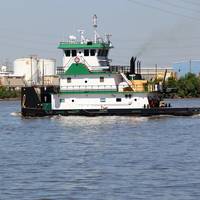
The Towing Vessel National Center of Expertise (TVNCOE) posted on its website February 2, 2018, that the U.S. Coast Guard has approved Meridian Global Consulting, LLC as a third-party organization (TPO) to carry out certain functions in accordance with Subchapter M. The current list of all Subchapter M approved TPOs is maintained on TVNCOE’s TPO webpage. In accordance with 46 CFR 139.110, classification societies that are recognized and/or authorized meet the requirements of a TPO.
Subchapter M: Top 5 Moves to Make Now
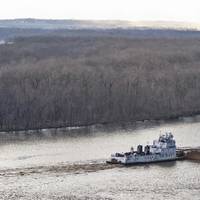
In 2004 Congress reclassified towing vessels as vessels subject to inspection. Thus began a lengthy process of regulation drafting by the U.S. Coast Guard, with a great deal of input from the towing industry. In 2011, the Notice of Proposed Rule Making was published giving the public its first look at what has become known as Subchapter M. Over 3,000 comments were received by the Coast Guard on the Proposed Rule. After five years of responding to those comments and revamping Subchapter M, on June 20, 2016 the Final Rule was published.
El Faro and Perceived Deficiencies in the ACP
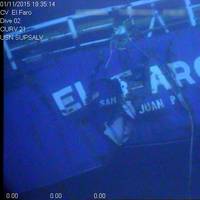
The October 1, 2015 loss of the U.S. cargo vessel El Faro along with its 33 member crew led to the convening of a Coast Guard Marine Board of Investigation charged with determining as closely as possible the cause(s) of the casualty; whether there is evidence that any failure of material was involved; whether there is evidence of misconduct, inattention to duty, negligence, or willful violation of law; and whether there is evidence that government personnel contributed to the casualty. The Marine Board released its report on October 1, 2017, the second anniversary of the casualty.
US Coast Guard Hosts Subchapter M Forum

Marine Safety Unit Chicago and the U.S. Coast Guard Towing Vessel National Center of Expertise hosted an informational outreach forum Wednesday with towing vessel operators to explain the implementation of the new regulations for the inspection of towing vessels, Subchapter M. The meeting was held at the offices of Illinois Marine Towing in Lemont Wednesday morning with more than 80 industry representatives from the Great Lakes and the Mississippi River Basin attending. This informational…
Trelleborg Trains USCG on Liqufied GasTransport
Trelleborg’s marine systems operation has again supported the U.S. Coast Guard by delivering a third training session in ensuring the safe, secure and clean transportation and use of liquefied gas in U.S. waters. As liquefied gases become a major commodity across the U.S., there is a critical need for the coast guard community to understand the systems used on board liquefied gas ships and how these work with onshore facilities. Richard Hepworth, President, Trelleborg Marine Systems, explained, “The liquefied gas industry is now well-established in the U.S, particularly along the Gulf Coast. Understanding how to carry out ship to shore connections for both liquefied gas carriers and fueling operations is essential for all coast guard personnel…
Coast Guard, Industry Navigate Future of Liquefied Gas
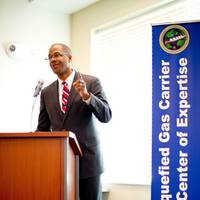
Senior U.S. Coast Guard leaders and liquefied-gas-industry experts from around the country came together the second week of December at Sector Houston-Galveston to prepare for the increased use of liquefied gases throughout the maritime community and gain a deeper understanding of the intricacies each party faces as they adapt to the rapid growth in this multibillion dollar industry. The maritime community is experiencing an international shift with the increased transport and use of liquefied gases. The increased supply created by the U.S.
Insights: Rear Admiral Paul F. Thomas
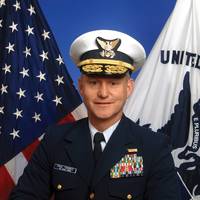
Rear Admiral Paul Thomas is the Assistant Commandant for Prevention Policy overseeing three Coast Guard directorates: Inspections and Compliance, Marine Transportation Systems, and Commercial Regulations and Standards. The programs include waterways management, navigation and boating safety, ports and facilities, merchant mariner credentialing, vessel documentation, marine casualty investigation, commercial vessel inspections, and port state control. A longtime specialist in Marine Safety…
USCG Addresses Future of Marine Fuels
The Pacific Merchant Shipping Association hosted The Future of Marine Fuels: Emission Control Area and Liquefied Natural Gas Conference in San Pedro, California on December 4, 2014. Representing the U.S. Coast Guard’s (USCG) Liquefied Gas Carrier National Center of Expertise (LGC NCOE) were Lt. Cmdr. Anthony Hillenbrand and Scott LaBurn. As a speaker and panelist, Hillenbrand addressed more than 50 industry, state and local agency representatives with comments focused on services provided by the LCG NCOE and the status of national policies regulating LNG fueled vessels and LNG bunkering processes. The LGC NCOE is one of six NCOEs nationwide focusing on providing consultation and technical services to the marine industry and Coast Guard on matters related to liquefied gas carriers…
Texas City Y Collision: Formal Casualty Hearing Notified
The US Coast Guard informs that in conjunction with the National Transportation Safety Board, it will begin a formal hearing at the Galveston County Criminal Justice Center Monday, June 2, 2014 at 1 p.m. On March 22, 2014, the Summer Wind was en route to the Port of Houston when it collided with a barge owned by Kirby Inland Marine, which was being towed by the tugboat Miss Susan and was headed from the Port of Texas City to the Intracoastal Waterway along the Bolivar Peninsula. The vessels collided near the tip of the Texas City Dike, in an area known as the Texas City Y, resulting in the spillage from the barge of 168,000 gallons of fuel oil into the water.
Ten Most Frequently Observed Towing Vessel Deficiencies
The U.S. Coast Guard’s Towing Vessel National Center of Expertise (NCOE) recently conducted an analysis of all deficiencies recorded by CG field personnel while Examining “uninspected towing vessels” (UTV) under the Towing Vessel Bridging Program and through other activities. The purpose of this analysis was to provide information and visibility on the most common UTV deficiencies list to share with UTV owner/operators in order to assist them in identifying and correcting common problems. In May of this year, they issued a comprehensive list that workboat operators – no matter what sector in which they operate – will find enormously helpful.
Insights: Rear Admiral Joseph A. Servidio
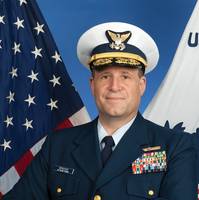
Rear Admiral Joseph A. Servidio is Assistant Commandant for Prevention Policy overseeing Inspections and Compliance, Marine Transportation Systems, and Commercial Regulations and Standards. Theses directorates include waterways management, navigation and boating safety, commercial vessels, ports and facilities, merchant mariner credentialing, vessel documentation, marine casualty investigation, inspections, and port state control. His previous assignments include numerous postings in marine inspection, marine safety and investigation billets. Servidio is a graduate of the U.
USCG Schedules Hearing for Kulluk Grounding
A Coast Guard formal marine casualty investigation hearing is scheduled for May 20 at noon, at the Anchorage Loussac Library, Assembly Hall Chambers, to investigate the contributing causes that led to the conical drilling unit Kulluk grounding on Sitkalidak Island Dec. 31, 2012. The Coast Guard conducts investigations following marine casualties to determine the causal and contributing factors that led to the incident. This allows the Coast Guard to potentially save lives and protect the environment in the future by identifying what went wrong and how it can be avoided in the future. The investigative hearings are an essential part of the investigative process…
Sunken Fishing Vessel Identified 8,920-ft Down
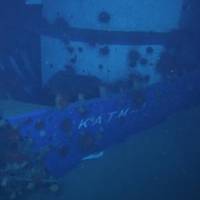
The Coast Guard has identified a sunken fishing vessel missing since 1972. a remote operating vehicle (ROV) to investigate. The fishing vessel Katmai was discovered in 8,920 feet of water approximately 200 miles offshore. After receiving data of the discovery from BOEM, the U.S. Coast Guard Investigations National Center of Expertise initiated a cold case investigation, the result of which has now been published by the Coast Guard. Oskar Joos, his wife, eight-year-old child and deckhand Clinton Hollevoet departed Mobile for Anchorage, Alaska on the fishing vessel Katmai Feb. 18, 1972.
'Kulluk' Damage Assessment Continues
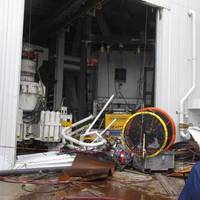
The Coast Guard continues oversight of the runaway Shell conical rig still anchored in Kiliuda Bay, Alaska. The Kulluk ran aground Dec. 31, 2012 on Sitkalidak Island and was later refloated and anchored in Kiliuda Bay. Coast Guard personnel from the National Center of Expertise, the Salvage Emergency Response Team and Sector Anchorage have been aboard the Kulluk to assess the vessel’s stability, identify any potential pollution issues and to gather information for the ongoing investigation into the incident.
A Regulatory Seascape

Regulation shapes the workboat industry perhaps more than any other single factor. This regulatory seascape includes a myriad of onerous and ever-changing rules. A ‘SITREP’ on those choppy waters is therefore in order. Last December, the Coast Guard closed the public comment period following its Notice of Proposed Rulemaking (NPRM) requiring nearly all towing vessels to obtain Certificates of Inspection under Subchapter M of CFR 46. The Coast Guard’s Towing Vessel National Center of Expertise (NCE) estimates that there are 5,800 U.S.





